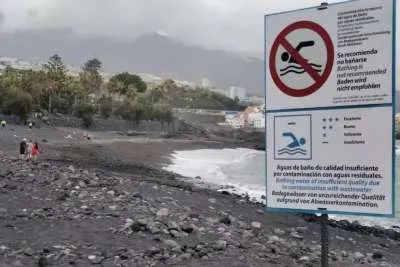Bar staff and waiters are the most in-demand job in southern Tenerife
- 10-01-2025
- Business
- Canarian Weekly
- Photo Credit: Stock Image
Salaried bar staff and waiters have become the most sought-after workers in the south of Tenerife, accounting for 19.33% of all employment contracts signed in December 2024 across the Canary Islands.
This finding, detailed in the monthly report from the Canary Islands Employment Observatory (OBECAN), demonstrates the dominance of the hospitality sector in the regional labour market.
Following these, are cleaning staff for hotels and offices represented by 14.46% of contracts, with retail and warehouse sales personnel coming in third at 12.75%. Other notable roles included kitchen assistants (5%) and salaried cooks (4.19%).
Employment Trends and Unemployment Rates
The Canary Islands ended 2024 with 156,344 unemployed people, reflecting a year-on-year decrease of 6.85%, or 11,501 fewer individuals without work.
Women made up 57% of the unemployed, compared to 43% for men. Among job seekers, hospitality led with 14.83%, followed by commerce (16.16%) and construction (9.02%).
The unemployment rate dropped across most sectors in 2024, with agriculture seeing the most significant decline (-24.95%), followed by industry (-9.46%) and hospitality (-5.61%). The construction sector, however, remained stable, with only minor fluctuations.
Municipalities in the south of Tenerife largely saw unemployment reductions exceeding 4%, with the exceptions of Arico, Santiago del Teide, and Vilaflor, which experienced slight increases.
Contract Trends by Sector
In December, hospitality dominated new employment contracts, accounting for 33.04%, followed by commerce (15.54%), public administration and defence (5.72%), and services to buildings and landscaping (4.05%).
Other sectors such as film and media activities (3.89%), construction (3.18%), industry (3.05%), and agriculture (1.25%) played smaller roles.
Encouragingly, the number of permanent contracts increased in 2024, representing 38.09% of total agreements, a 2.11% rise compared to the previous year.
The continued growth in the hospitality and commerce sectors, coupled with a reduction in unemployment, reflects the resilience and adaptability of Tenerife's labour market. However, the stability in construction and minor regional setbacks suggest that targeted interventions in specific areas may be necessary to sustain these positive trends in the coming year.
Other articles that may interest you...
Trending
Most Read Articles
Featured Videos
TributoFest: Michael Buble promo 14.02.2026
- 30-01-2026
TEAs 2025 Highlights
- 17-11-2025































































